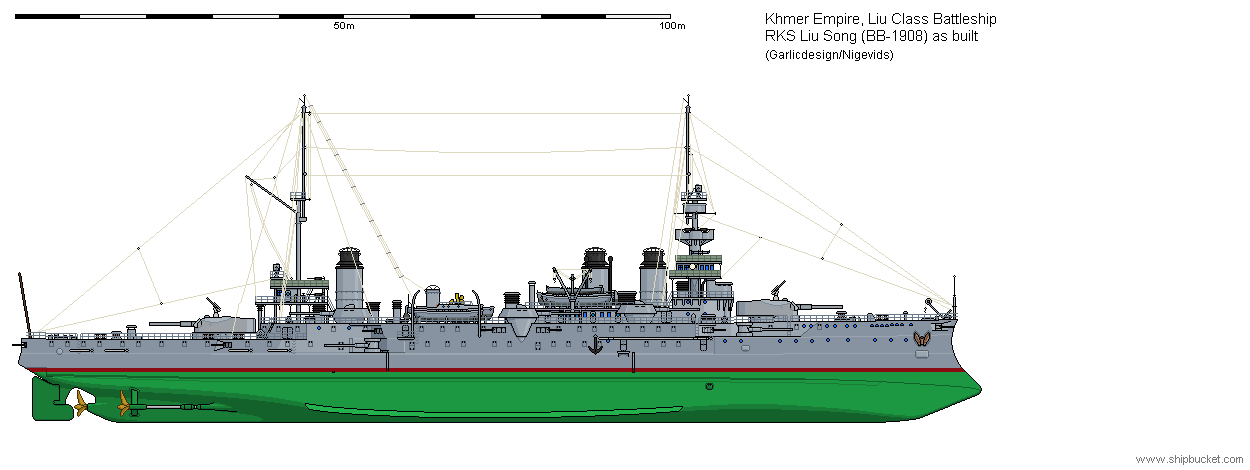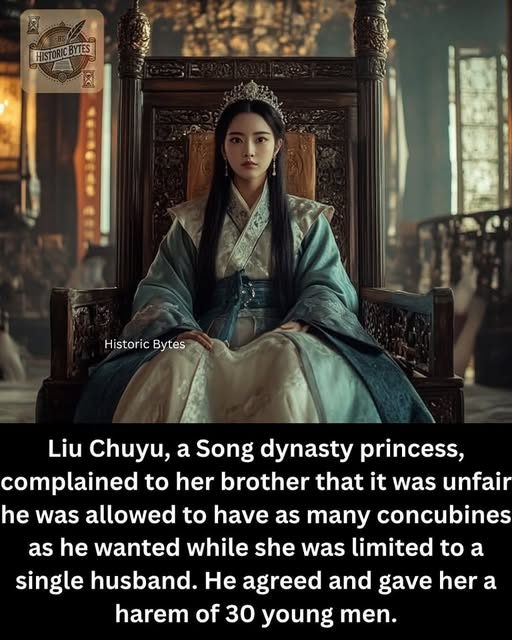These three ships were the first home grown battleships built in the new shipbuilding yards. One in each yard, Indrapura, Oc Eo, and Singapore. It was originally estimated the ships would take 4-5 years to complete. In the end they took 6-7 years. Not because the Khmer builders were slower than everybody else, but because HMS Dreadnought hit the water in 12/1906, and the three Khmer ships no longer looked so impressive. Construction was slowed while three more ships were authorised and laid down. Again one at each yard.
The three Liu class were too far advanced to be able to have too much in the way of alterations done to the ships. Consideration was given to removing the 7.6" guns and replacing them with four single 12". Once the cost was worked out and how much work would be involved, the ships were completed as is. Better to spend the money on the new ships. The other thing that the Dreadnought brought to the world was turbine engines in battleships. Again the Khmer builders looked at the Liu Class to see if it was possible to rip out the triple expansion powerplant and replace it with turbines. The cost was again too horrendous.
The main local change to the Liberte design was the incorporation of a Khmer twin 12" turret. The turret featured higher elevation for longer ranged firing. The French turret was from 1893 with a 15 degrees elevation for 13,120 yards range, firing a 770lb shell. The local turret was a 1904 design with a 20 degree elevation for 24,020 yards range, firing a 1000lb shell. A much superior weapon. Being such a good gun made it possible to reuse four of the twin turrets for new construction 1917-1921.

The three ships spent their careers based at Singapore and enforcing the Khmer tariffs on the passing traffic. The whole world new about the Khmer tariff system through the Singapore Straits, but still they would try and get away without paying. The Khmer patrols doubled at night and the Navy became very good at 'night' fighting. Any ship failing to pay the tariff would be seized and taken to Singapore, where the cargo would be assessed, and goods to the value of the tariff would be removed the ship then being released. This caused a lot of trouble with some of the nations that disliked paying the tariff. Unless they were willing to be expelled from the Straits, they paid. To take the long way round would cost more than the tariff. Reluctantly they paid. But they would remember.
In 1917 the Liu class had its 7.6" guns removed to provide the armament for three new cruisers. This was the start of the slippery slope the Liu class were now on. The ships became harbour training ships in 1919, and two of them had their twin 12" removed for a new ship. 1923 at only 15 years old they were completely demilitarised as per the Washington Treaty. The Khmer Empire did not have enough battleship tonnage available to keep the old ships.
